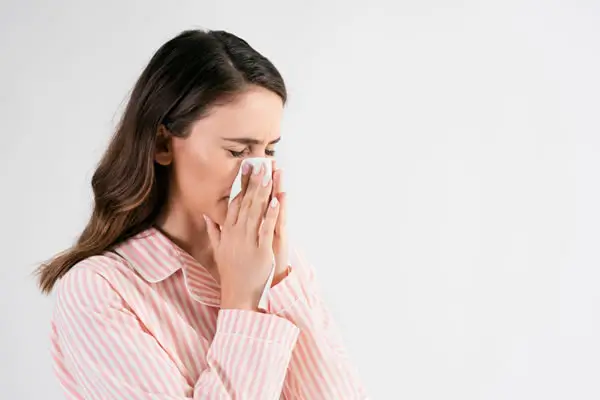What are Seasonal Allergies?
Seasonal allergies, also known as allergic rhinitis or hay fever, are allergic reactions that occur at specific times of the year when certain outdoor allergens are most prevalent. These allergens typically include pollen from trees, grasses, and weeds, although mold spores can also contribute to seasonal allergy symptoms.
Symptoms of Seasonal Allergies
Symptoms of seasonal allergies can vary but often include:
- Sneezing
- Runny or stuffy nose
- Itchy or watery eyes
- Itchy throat or ears
- Postnasal drip
- Fatigue
Cause of Seasonal Allergies
Seasonal allergies are caused by the body’s immune system overreacting to harmless substances in the environment, such as pollen or mold spores. When an allergic person comes into contact with these allergens, their immune system releases chemicals like histamine, which triggers allergy symptoms.
Treatment for Seasonal Allergies
Management and treatment of seasonal allergies may involve:
- Avoiding allergens by staying indoors on days with high pollen counts, keeping windows closed, and using air purifiers.
- Taking over-the-counter or prescription antihistamines, decongestants, or nasal corticosteroids to alleviate symptoms.
- Using nasal saline irrigation to flush out allergens from the nasal passages.
- Allergy shots (immunotherapy) or sublingual immunotherapy (under-the-tongue tablets) to desensitize the immune system to specific allergens.
It’s essential for individuals with seasonal allergies to work with a healthcare professional, such as an allergist or immunologist, to develop a personalized treatment plan tailored to their specific symptoms and triggers.


If you suspect you have allergies or are experiencing symptoms of an allergic reaction, it’s important to consult with an doctor for proper diagnosis and treatment. They can help identify the triggers of your symptoms and develop a management plan to improve your quality of life.
